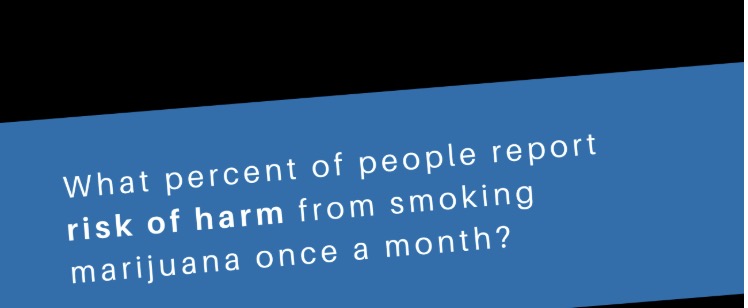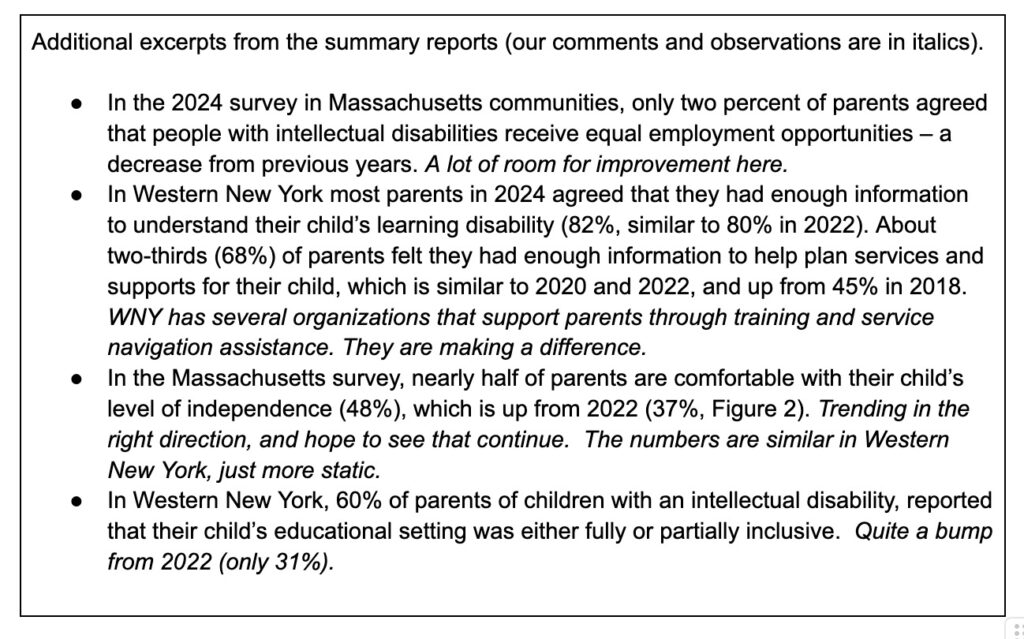About three-quarters of parents in Eastern Massachusetts communities disagreed that it would be best for persons with intellectual disabilities to live and work in special communities (76%, up from 46% just two years ago).
While the majority of Western New York parents report that youth with intellectual disabilities do not receive equal education opportunities, about three-fourths of these youths’ parents (72%) were satisfied with the quality of the education their child receives.
These statistics are just examples of what we’re seeing from the summary reports we recently received for the family surveys that the Tower Foundation conducted last year (2024) in the communities we fund. These surveys, supplemented by publicly available data (from federal surveys or state health departments, for example), help create community-level indicators that can tell us about things like employer accommodations for people with learning disabilities or young people’s perception of harm from marijuana use.
When these surveys are repeated, we can see how these attitudes and perceptions change over time and start to identify factors behind these changes. Has growing awareness of dyslexia resulted in more employer accommodations? Has recreational marijuana legalization changed attitudes such that even frequent use is not associated with any potential harm? These data and trends can inform both our grantmaking and our grant partners’ work.
Another reason for this data collection work is the fact that families of children with disabilities are not often given a forum for sharing their experiences relating to the services and supports that their communities provide. By making this data publicly available, we hope to give other stakeholders with an interest in the well-being of these communities some insights into persistent – or emergent – issues and concerns.

We’ve worked with Wilder Research from Saint Paul, Minnesota since 2017 to conduct these custom community and family surveys every two years. Wilder has now conducted both the family surveys and community awareness surveys four times, and with data that now span a period of about eight years, trends take clearer shape.
Take a look at our current and past survey summary reports here. The family surveys explore the experiences and perspectives of parents of children with intellectual disabilities and with learning disabilities. The community surveys, also administered by Wilder, track perceptions and awareness of issues that also include mental health and substance use in the communities where we work.
The “Explore the Data” section of our website offers graphs that capture a range of community trends. Take for instance, the percentage of parents that believe that employers in the community provide adequate accommodations for employees with learning disabilities. In our Massachusetts funding areas, we’ve seen this percentage drop over the years from 34% to 25%. This suggests that strategies may be needed to get employers to realize the value of this segment of the workforce and/or to better support them in jobs when they get them.


